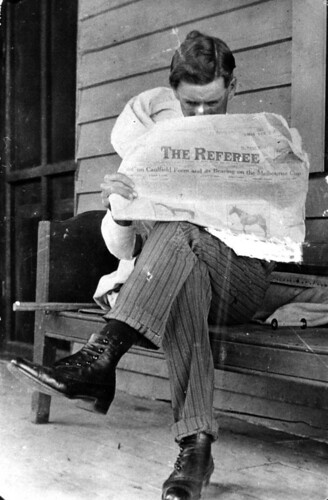PR is a relatively new industry in relation to the other media giants like journalism and advertising, so it’s constantly changing.
Public relations, to me, is an industry that needs to naturally evolve with the times because it’s all about relevance and being on-trend. While practitioners are now highly engaged with social media, the industry still holds onto the traditional media.
The traditional printed media, while suffering cuts and circulation declines, will always be a vital component in a practitioner’s tool belt. And journalists will probably always prefer emails and face to face contact rather than PRs selling stories through Twitter direct messages or private chat on Facebook.
But what does this mean for the up-and-coming PRs?
Studying at university was never really in my life plan, despite the fact I’ve always been very academic. I wanted to start my career and get my teeth into the real world as soon as I could. But a degree was necessary, and my brain wasn’t quite done with education just yet. School taught me to study – books are my best friends and academic journals even better.
While I was constantly learning from things already written and examples that had happened, I’d never been told to listen to the current world too.
What’s most daunting about being a PR from my generation is that we’re thrown in at the deep end and out of our comfort zone when it comes to consuming media.
We are so used to getting the news from apps on our phones rather than newspapers. We’re in the habit of spotting trends on Twitter and Facebook rather than magazines.
Understanding publications, their audience, focus, deadlines and style is paramount in achieving the right coverage, or in most cases, any coverage at all. And this is where PRs of my generation will feel so overwhelmed.
There’s so many newspapers for starters. Nationals, regionals and locals all have different requirements. Then there’s magazines – even wider ranging in their focus and audience. That’s not even starting on trade publications which have even more specialised requirements.
And that’s just printed media. The tip of the iceberg before we get onto broadcast – television and radio are a whole other kettle of fish to comprehend.
The only way to understand these publications is reading them regularly and consistently. But there’s just so many, that starting this late on provides a bit of a disadvantage. Not to mention that generally the majority of students now rarely have two coins to rub together, and unfortunately there’s more necessary things to buy than a newspaper.
But we do have one key advantage.
Our knowledge of social media is second to none. We were brought up on it.
I may not be an expert, but I’ve used various social media platforms for many years and know their audience, who it reaches and doesn’t, what types of campaigns work best and which don’t. We’re tech savvy us young’uns. And that is what existing PR agencies and in-house teams need – the new stuff.
To me, it feels like we’re stepping into an industry that needs us, but we still need the traditional experts too.
It’s always going to be difficult understanding a new media – whether it’s existing professionals understanding social or our fresh faces understanding print and broadcast. The trick is exposing yourself to what you don’t know.
I’m familiar with quite a few papers from having them in the house from my parents. But I’ll admit I never read the sports pages or any celebrity gossip.
We can never tell what projects and assignments will fall into our laps. Whatever subject it is we are expected to become experts. But what we should always be experts in is the media. Every shape, form and size of it.



